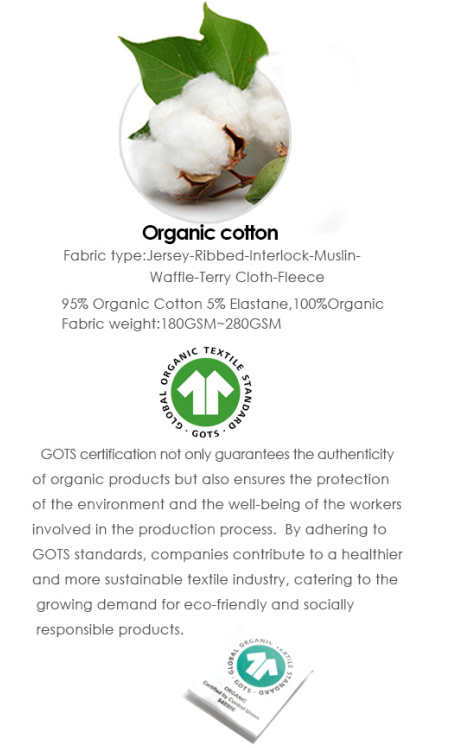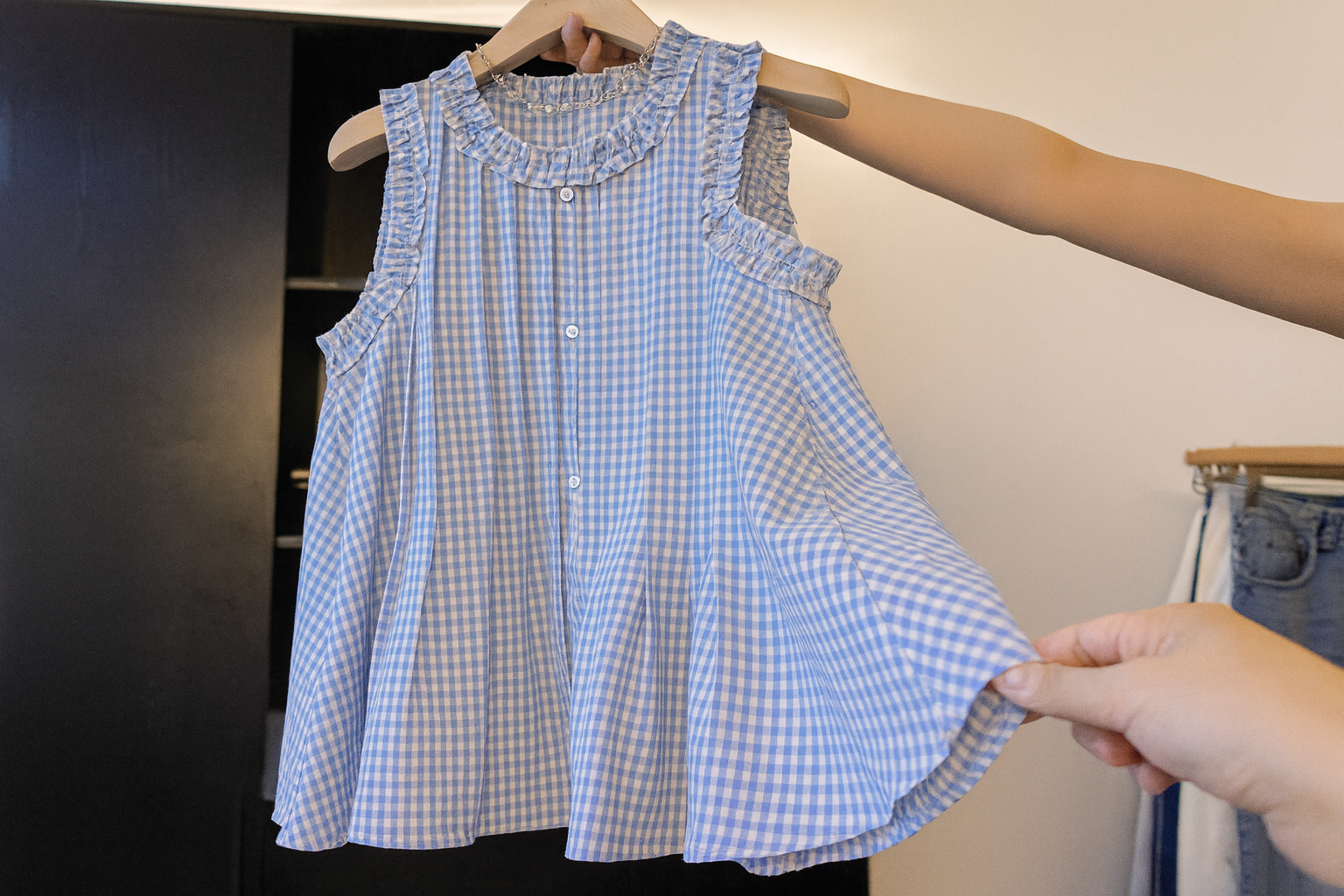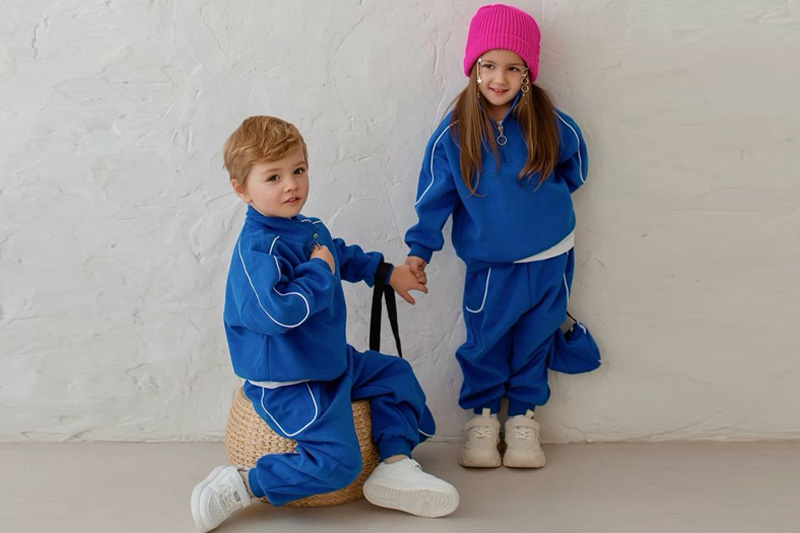It’s no secret that parents today are getting smarter—and pickier—about what their kids wear. From baby onesies to tween tees, one thing keeps popping up on wishlists: organic cotton. But why are so many children’s brands making the switch?
Organic cotton is chosen by children's clothing brands because it’s softer, safer for sensitive skin, and grown without harmful chemicals. It's also more sustainable, offers better breathability, and aligns with the values of eco-conscious parents. Certifications like GOTS and OEKO-TEX give extra reassurance that fabrics are safe, ethical, and environmentally responsible.
Organic cotton isn’t just a “green” trend—it’s a thoughtful choice rooted in care for kids, families, and the planet.
Why is organic cotton safer for babies and children's sensitive skin?
Let me tell you, I once gifted my niece a super cute romper that made her itch like crazy—turns out it was made with regular cotton, treated with who-knows-what. That moment stuck with me. Kids’ skin is thinner, more absorbent, and reacts more easily to harsh chemicals. That’s why organic cotton just makes sense.
Organic cotton is grown without synthetic pesticides, bleach, or toxic dyes—making it much gentler for children’s sensitive skin. This reduces the risk of rashes, allergies, and irritation, giving parents peace of mind.
Skin-deep benefits, truly deep impact
Children’s skin is like a sponge. It absorbs more, reacts faster, and doesn’t have the same defenses as adults’. Organic cotton skips the chemicals right from the seed—no glyphosate, no formaldehyde, no “unpronounceables.” Just clean, breathable fabric that lets skin do its thing.
Here’s what that looks like:
| Factor | Regular Cotton | Organic Cotton |
|---|---|---|
| Pesticide Use | Heavy | None |
| Bleaching | Often chlorine-based | Typically peroxide or not used |
| Skin Reaction Risk | Higher | Significantly lower |
| Breathability | Medium | High |
I've heard from countless buyers—especially in Europe and Australia—that their customers ask specifically for certified organic cotton, especially when it comes to babies or kids with eczema. For a brand, this is a simple way to show that you care—because you genuinely do.
Is organic cotton more durable and long-lasting for active kids?
Kids run, jump, fall, and somehow get spaghetti on their backs—don’t ask me how. Point is: their clothes need to be tough. Nobody wants a t-shirt that falls apart after two washes.
Organic cotton fibers are handpicked and less processed, preserving their natural strength. This results in fabric that holds up better through rough play and repeated washing—perfect for active kids.
Strong threads for wild lives
I remember watching a group of kids at a park in California sliding down a dusty hill on cardboard boxes. Their clothes took a beating. The ones wearing organic cotton? Their parents told me those outfits still looked good after the third wash.
Why? Because organic cotton isn’t over-processed. It keeps its natural length and strength. Less breakage = fewer holes. Plus, it gets softer with every wash, without losing shape.
Here’s a little test result I came across when comparing shirts:
| After 10 Washes | Regular Cotton Tee | Organic Cotton Tee |
|---|---|---|
| Color retention | Faded | Still vibrant |
| Stitch integrity | Loose threads | Still intact |
| Shrinkage | Noticeable | Minimal |
Durability matters to families—and if you’re a brand, fewer complaints and returns are good for business.
Why are today’s parents demanding organic and natural fabrics?
It’s not just about being “eco-friendly.” It’s about protecting their kids. Most parents today are bombarded with scary headlines about microplastics, hormone-disrupting chemicals, and fast fashion’s hidden costs. They want better—and they’re not afraid to ask.
Modern parents prefer organic fabrics because they offer peace of mind, align with healthier lifestyles, and reflect a growing awareness of ethical consumption.
The parent mindset has changed
I spoke to a mom in Toronto who told me: “If I’m careful about what goes into my child’s body, I should be careful about what goes on it too.”
That mindset is everywhere now. Organic food, non-toxic toys, fragrance-free baby wipes—and yes, organic clothing. Parents want safe, kind materials that don’t feel like a compromise.
Brands that respond to these emotional drivers build more trust. They’re not just selling clothing; they’re joining a community of care.
Do fabric certifications like GOTS and OEKO-TEX really matter to consumers?
Absolutely. And not just to the picky ones. Certifications make the invisible visible. When parents (and buyers) see those logos, it tells them the brand has done its homework.
Yes—certifications like GOTS and OEKO-TEX provide credibility and reassurance that fabrics are tested for harmful substances and meet global safety and sustainability standards.
Trust isn’t built—it’s certified
Let’s be honest: anyone can say their fabric is “safe” or “eco.” But when a buyer sees a legit certification? That’s proof. It cuts through doubt, especially for B2B clients who are sourcing from overseas and can’t touch the product themselves.
Quick snapshot:
| Certification | What It Means |
|---|---|
| GOTS | Organic content + safe dyes + ethical production |
| OEKO-TEX 100 | No harmful substances, even in non-organic fabrics |
As a Brand founder, having these seals on your spec sheet builds confidence—especially for our North American and European clients who care deeply about transparency.
In what ways is organic cotton more environmentally friendly?
This is a big one. More and more parents are thinking beyond their laundry room—about soil, water, and future generations. And brands are following suit.
Organic cotton uses less water, avoids harmful agrochemicals, and promotes healthier soil and biodiversity—making it a more sustainable option for kids' fashion.
A cleaner footprint, a clearer conscience
Let me paint you a picture. Traditional cotton farming uses tons of water—thousands of liters for a single shirt. It also pollutes rivers with runoff and depletes the soil.
Organic cotton flips the script.
- No synthetic fertilizers = no poisoned waterways
- Healthier soil = more carbon captured from the air
- Rain-fed crops = less water stress
It’s not perfect, but it’s better. A lot better.
And if you're selling to Australia or parts of Europe, many retailers now require sustainability metrics in your pitch. Organic cotton helps you tick that box—and actually feel good about it.
Why does Taian Lianchuang Co., Ltd. focus on using organic cotton to produce children's clothing for 5-15 years old?
Because we’ve listened. Not just to trends—but to the real concerns and hopes of parents, buyers, and kids themselves.
At Taian Lianchuang, we choose organic cotton because it’s what today’s kids deserve: safe, strong, and sustainable. For us, it’s not just about business—it’s about values.
We’ve worked with brands across Europe, Australia, and North America, and we’ve seen the demand for high-quality, certified organic fabrics explode. Whether it's for schoolwear, casualwear, or eco collections, organic cotton has become the baseline for trust.
Plus, our factory is certified, experienced, and focused on communication—that means no frustrating delays, no shady certificates, and no lost seasons.
Conclusion
Organic cotton isn’t just a fabric. It’s a promise—to kids, to parents, and to the planet. And that’s a promise worth making.



